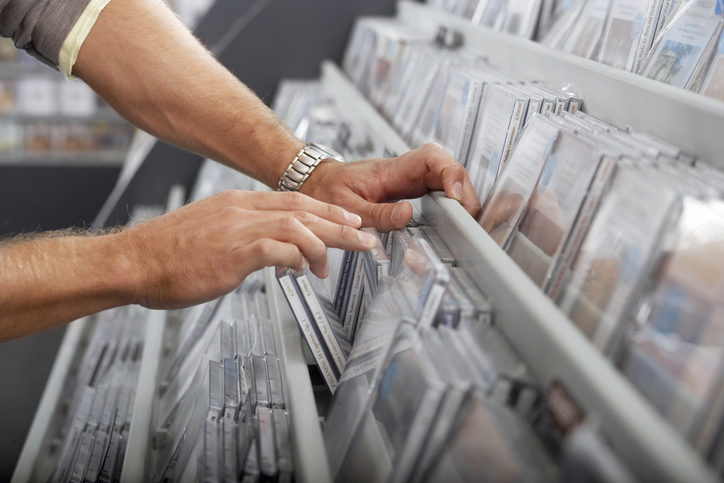At some point, we really, really need to admit that album sales charts just don’t matter. No one is buying physical products anymore.

Compared to this point last year, CD sales are down by over 30 per cent.
Take this past week’s Canadian SoundScan charts, the ranking of physical sales of albums, both CD and vinyl, across the country. The best-selling album across the entire nation was Rewind, Replay, Rebound, from a rock band from Denmark. All they had to do to achieve that vaunted No. 1 status was to sell 2,551 albums. In the whole country.
READ MORE: Priyanka Chopra confronted by Pakistani woman — ‘You’re a hypocrite’
It gets worse the further down the chart you go. Country singer Tyler Childers snuck into the top 10 by moving 602 units of his new album, Country Squire. And to make it into the top 200 of the best-selling albums in Canada last week, all you had to do was sell 47 copies. Congrats to Corey Hart for squeaking onto the chart by selling less than four dozen copies of Dreaming Time Again. Again, that’s across a nation of 37 million souls.
It’s just as bad in the U.S., comparatively speaking. Childers finished first by less than 150 units over the soundtrack for Descendents 3. Total sales: 23,962 copies, spread out over 320 million people.
Even Billboard, long the Bible of music industry metrics, realizes that winners and losers can no longer be determined by looking just at sales. While the company still uses sales and radio airplay in compiling the weekly charts, more weight is given to streaming numbers, which are factored in by using a formula known as TEAs (Track Equivalent Albums).
But old habits die hard. To the general public, the brag of having a number one album is still very impressive and prestigious, regardless of how that record reached the top. In other words, it’s good for bragging and branding.
READ MORE: K-Pop sensation BTS to take first break since 2013

Get daily National news
This brings me to the topic of a practice known as “bundling.” You may have already experienced this yourself.
Bundling involves including a CD with the price of a concert ticket. Doing so counts as a sale in the industry’s eyes. The result inflates the numbers for a CD treated this way, giving it a better chance of reaching the top of the charts.
If memory serves correctly, the first major artist to try this tactic was Prince. In 2004, everyone who bought a ticket to his Musicology Live2004ever tour — a road trip that was almost totally sold out — was automatically given a copy of the Musicology album.
That boost turned the record into the best-selling Prince album in years. (Note that we can say “best-selling” because the album’s cost was baked into the price of a ticket — ranging from US$75-80, an enormous sum for the day, and not given away free.)
In the first five weeks of The Purple One’s scheme, 632,000 albums were “sold,” pushing it up the charts. Feeling hoodwinked and manipulated, Billboard rewrote the rules, saying that customers must be given the option of getting a CD with their ticket. CDs automatically thrust at ticket buyers would no longer count towards chart position.
That policy seems awfully quaint today. Billboard has since jettisoned that policy and has no trouble with bundling.
READ MORE: Drake under fire for Beatles arm tattoo
In the last few years, everyone from Bruce Springsteen and Arcade Fire to The Raconteurs and Vampire Weekend has wrapped CDs in concert tickets, often with pleasing chart positions.
This year alone, every album to make it into the top three on the American Billboard charts got there due, at least in part, to a bundling plan. Nearly every single rock album to reach number one since 2017 has been the result of bundling.
And this doesn’t just work with new albums. Ask Jon Bon Jovi. Tickets for his 2018 tour came with copies of the 2016 album This House is Not for Sale, juicing it so much that it hit number one. A week later, after all the tickets were sold, it crashed to number 169.
Not everyone is pleased with these practices. Some record executives want to go back to the old days when CDs thrust upon fans automatically with the sale of a concert ticket would not count towards chart position. The Black Keys have opted out entirely, framing bundling as a gimmick to game the system.
WATCH: (July 8, 2019) Metallica’s Kirk Hammett talks ROM horror exhibit with Alan Cross

And then there are hip-hop artists who don’t bother. Because hip-hop and rap dominate streaming, albums in that genre can hit number one based on just their streaming numbers. Ask Drake or J. Cole about that.
The charts as we once knew them are badly broken, largely because we’re in a transitional period between what you could accomplish with physical sales and the power of streaming. Until things sort themselves out, stay prepared to get that new CD whether you want it or not.
Alan Cross is a broadcaster with 102.1 the Edge and Q107, and a commentator for Global News.
Subscribe to Alan’s Ongoing History of New Music Podcast now on Apple Podcast or Google Play










Comments